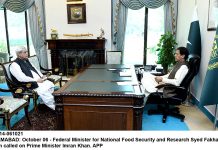ISLAMABAD: As many as 64 percent of Pakistani surveyed by Free and Fare Election Network (FAFEN) believed that certain level of corruption prevails in government departments.
Conducted in February, the survey interviewed 6,030 randomly selected people at 603 locations stratified in all national and provincial assembly constituencies as part of the socio-political profiling exercise conducted to understand the voting behaviour and factors influencing it. The unique research, also involving key informant interviews and focus group discussions, was meant to develop socio-political profiles of all National Assembly constituencies detailing the way people vote as well as determinants of their electoral choices. The profiles will be a rich resource for political parties, media, academia and interested citizens ahead of the next general elections.
The profile of the respondents largely matches the profile of Pakistanis aged 18 years and above. The survey findings were generalised to the adult Pakistani population nationally and provincially. However, the findings could not be generalised for Islamabad Capital Territory and the Federally Administered Tribal Areas (FATA). As many as 49 percent of all respondents were in Punjab, 16% in Khyber Pakhtunkhwa, 8% in Balochistan, 22% in Sindh, 1% in Islamabad Capital Territory and 4% in FATA.
Among those surveyed, 46 percent were adult women and 54 percent adult men. About 59 percent of the interviewees were between the ages of 18 and 35 years and 41 percent were above 35 years. While the proportion of the survey respondents, who had attained education up to the primary level or above, was 62 percent. There were 34 percent survey respondents who either never went to school or had dropped out before completing their primary level. As many as 3.8 percent respondents had attended madrassas and 0.2% vocational institutions.
The FAFEN will release detailed socio-political profiles in July. However, it plans to share some of the important findings of this survey in a series of public releases to inform the public discourse on pertinent national issues. Corruption has been selected as the theme for the first public release in view of the ongoing public debate on the issue against the backdrop of the Panama Papers leak.
As many as 6,030 randomly selected people were asked whether or not they had interacted with any of the 25 listed departments over the past six months. These departments include Education, Health, WAPDA, Sui Gas, police, Court, Revenue, Election Commission, Irrigation, Benazir Income Support Programme (BISP), Zakat and Ushr, Post Office, PTCL, Forest, Traffic Police, 1122, National Highways and Motorway Police, NADRA, Municipality, Utility Stores, Railways, PIA, Income Tax, Water and Sewerage and Local Councils.
As many 3,971 respondents – 2,305 men and 1,665 women – responded to in the affirmative. Of these 3,971 respondents, 1,751 were in Punjab, 999 in Sindh, 703 in Khyber Pakhtunkhwa, 276 in Balochistan, 29 in Islamabad Capital Territory and 213 in FATA.








.jpg)
